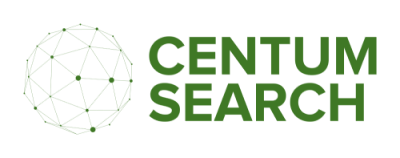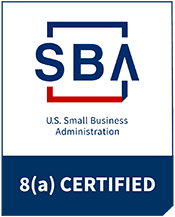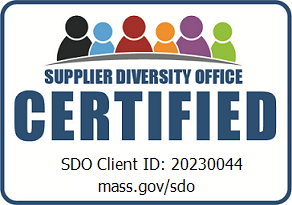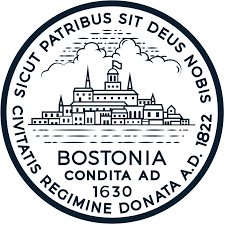By site-5PDQTw
•
July 21, 2025
Hiring your first executive is one of the most consequential moments in a startup’s journey. The right leader can unlock growth, instill operational discipline, and set the tone for your company’s culture. The wrong hire, however, can create costly setbacks—Harvard Business Review notes that hiring mistakes are not only expensive but can also sap morale and slow down your company’s momentum. This framework is designed to guide startup founders through a comprehensive, step-by-step process for hiring senior leadership, with deep dives into each critical phase. 1. Clarify the Role Every successful executive search starts with rigorous self-assessment. Before you post a job or reach out to your network, ask yourself: What does my business truly need at this stage? Are you seeking to accelerate product development, scale operations, or break into new markets? Pinpoint the precise outcomes you expect from this hire and how their leadership will move the company forward. It’s tempting to create a wish list of every skill or credential you hope for, but this can backfire. Overloading a job description with too many requirements can deter capable candidates, especially those from non-traditional backgrounds or adjacent industries. Instead, focus on the essentials: Which skills and experiences are truly non-negotiable? What would success look like for this leader in the first six, twelve, and twenty-four months? Bring your co-founders, key team members, and trusted advisors into this process. Their perspectives help you avoid blind spots and ensure alignment on the role’s scope and reporting lines. As McKinsey emphasizes, clarity in role definition and expectations is vital for attracting the right candidates and ensuring a smooth recruitment experience. Remember, not every challenge requires a full-time executive. Sometimes, a senior individual contributor or interim leader can help validate the need for a permanent hire. Be honest about whether you’re ready for this step—rushing into an executive hire before your organization is prepared can create more problems than it solves. 2. Craft Your Employer Value Proposition Once you’ve clarified the role, it’s time to turn your attention inward. Top executive candidates are rarely scanning job boards—they need to be inspired. Your employer value proposition must go beyond salary and perks. What is your company’s mission? How will this leader make a tangible impact? What is unique about your culture and team? Share your startup’s growth story, funding milestones, and the unique challenges ahead. Be transparent about the equity on offer, the vesting schedule, and what success could look like for an early leader. As a16z and Greylock both note, “As a CEO, the majority of your job is selling—convincing the best people in the world to come work for you”. Tailor your pitch to each candidate’s motivations. Some will be drawn by the promise of ownership, others by the thrill of building something from scratch, and some by the opportunity to shape a company’s culture from the ground up. Don’t underestimate the power of your company narrative. According to Greylock, a compelling story that is authentic and transparent about both the opportunity and the challenges ahead is critical for winning over top executive talent. 3. Build a Hiring Committee Executive hiring is a team sport. Resist the urge to go it alone. Instead, assemble a small, diverse hiring committee that includes founders, key team members, and trusted advisors or board members. This group will not only help you assess candidates from multiple angles—technical skills, leadership style, and cultural fit—but will also lend credibility to your process. Assign clear roles within the committee. Decide who will screen resumes, who will lead interviews, and who will own the final decision. Set expectations for timelines, confidentiality, and communication. By involving your committee early, you reduce bias, ensure buy-in for the final hire, and create a more robust, founder-friendly process. A well-structured committee also signals to candidates that your company values collaboration and diverse perspectives, which can be a major selling point for mission-driven leaders. 4. Source Strategically Finding executive talent is not about casting the widest net, but about fishing in the right ponds. Start with your network: reach out to investors, mentors, and industry peers for warm introductions. These trusted connections often surface candidates who are already pre-vetted for alignment with your mission and culture. Don’t overlook targeted outreach. LinkedIn, professional associations, and industry events can help you identify passive candidates who may not be actively looking but are open to the right opportunity. For especially hard-to-fill roles, or if your own network isn’t yielding results, consider engaging an executive search firm. While these firms come at a cost, they often can accelerate your search and bring access to “hidden” candidates. Set a clear sourcing timeline. If you haven’t found strong candidates within four to six weeks, it may be time to bring in external help to keep your search on track. Above all, prioritize candidates with startup experience—they’re more likely to thrive in environments that demand agility, resilience, and hands-on leadership. 5. Interview and Evaluate With a shortlist in hand, it’s time to dig deep. Executive interviews should go far beyond the resume. Structure your process to assess both competence and fit. Use consistent questions and scorecards to fairly assess candidates. Present real-world scenarios or case studies relevant to your business, and observe how candidates approach ambiguity, decision-making, and team leadership. Cultural alignment is just as important as technical expertise. Probe for values, adaptability, and risk tolerance. Startup leadership is not for everyone, and it’s better to uncover misalignments early. Always conduct thorough reference checks, ideally with both superiors and direct reports. These conversations can validate claims, uncover red flags, and provide a fuller picture of the candidate’s leadership style. Involve multiple committee members in the interview process to get a 360-degree view. Don’t rush. Many failed executive hires result from skipping reference checks or relying on gut feel alone. As McKinsey research shows, a rigorous, multi-step process dramatically increases the odds of a successful hire. 6. Use Transparency & Mentorship Honesty is your best recruiting tool. Be upfront about your startup’s stage, challenges, and expectations. Share the full picture—candidates should know what they’re walking into, challenges and all. This not only builds trust but also attracts leaders who thrive in uncertainty and are ready to roll up their sleeves. Invite mentors or advisors into the process. Let candidates meet your support network. This demonstrates that you’re invested in their success and provides them with additional context and resources. The best leaders value transparency and will ask tough questions. Welcome this—it’s a sign of a true executive mindset. McKinsey’s approach to transparency includes revising job descriptions to be more specific and launching programs that offer authentic insights into company culture, which helps candidates make informed decisions. 7. Offer with Equity Early-stage startups compete on upside, not cash. Structure offers that balance of risk and reward. Benchmark equity grants against market data for similar-stage companies. Be clear about vesting, dilution, and exit scenarios. Transparency here is key—explain how the equity package could evolve with future funding rounds and company milestones. Be upfront about what you can offer in terms of salary, and how compensation might change as you grow. Expect negotiation—top candidates will want to understand the full package and their impact on company growth. As SHRM recommends, clarity and fairness in your offer process help build trust and set the tone for your working relationship. It’s often helpful to bring in a third party or advisor to help with negotiations, which can keep the process objective and maintain goodwill between founder and candidate. 8. Onboard for Influence The first 90 days are critical for executive success. Don’t just hand over the reins and hope for the best. Provide structured onboarding: share company history, introduce key stakeholders, and ensure your new leader has access to all the information they need. Identify early wins that allow your new executive to build credibility and momentum. Schedule regular check-ins to address challenges, clarify expectations, and reinforce alignment. Empower your new leader with the autonomy and resources to make decisions and drive change. Remember, onboarding is not plug-and-play—founders should remain actively engaged to ensure a smooth transition. “Hiring the wrong person may be the most costly mistake a business can make.” — Harvard Business Review Great leadership hires are transformative. By following this framework, founders can dramatically increase their odds of landing—and keeping—the right executive to fuel their next stage of growth. Sources: “(11) Post | LinkedIn.” https://www.linkedin.com/posts/lancetanaka_finding-your-best-talent-most-of-my-clients-activity-7327660044613799937-98sM/ . “(11) Post | LinkedIn.” https://www.linkedin.com/posts/swingsearch_the-first-principles-of-executive-hiring-activity-7165727685292351488-ffX_/ . Bain Capital Ventures. “How To Hire Your First Leadership Team.” Accessed July 6, 2025. https://baincapitalventures.com/insight/how-to-hire-your-first-leadership-team-as-a-startup-founder/ . Built In. “5 Tips for Founders Hiring Their Executive Teams.” Accessed July 6, 2025. https://builtin.com/articles/hiring-executive-team . Cappelli, Peter, and Dane E Holmes. “Your Approach to Hiring Is All Wrong.” Harvard Business Review, 2019. Faith, Holly Rose. “The Executive Recruiting Playbook.” Greylock (blog), September 28, 2021. https://greylock.com/greymatter/the-executive-recruiting-playbook/ . Fox, Christy. “Executive Search for Startup Companies: Building a Leadership Team from Scratch.” Direct Recruiters Inc. (blog), January 15, 2025. https://directrecruiters.com/hiring-manager-advice/executive-search-for-startup-companies-building-a-leadership-team-from-scratch/ . “Startup Hiring - Guide to Executive Hiring for Your Startup,” July 2, 2024. https://startupsavant.com/startup-center/guide-to-executive-hiring-for-your-startup .








